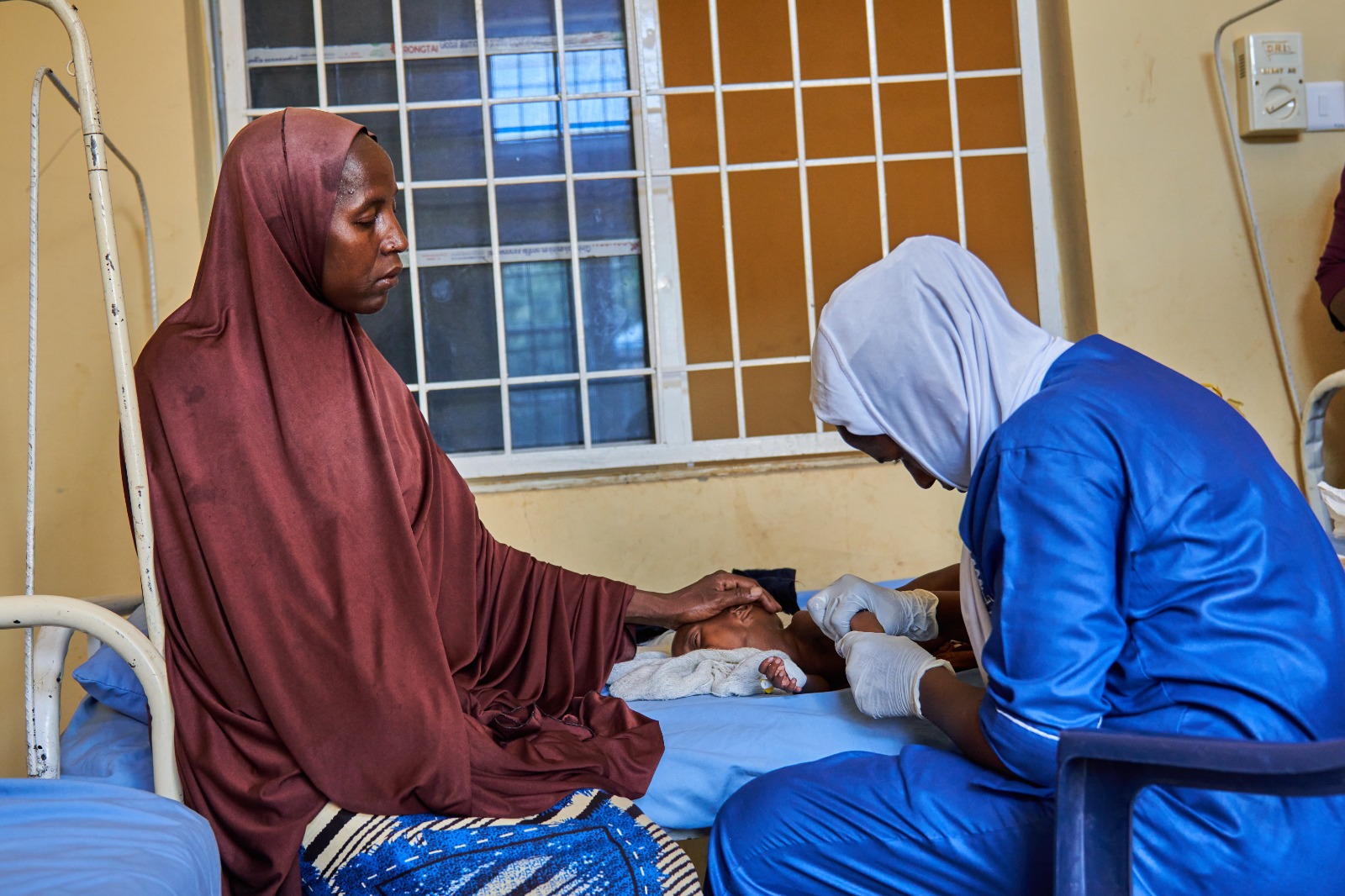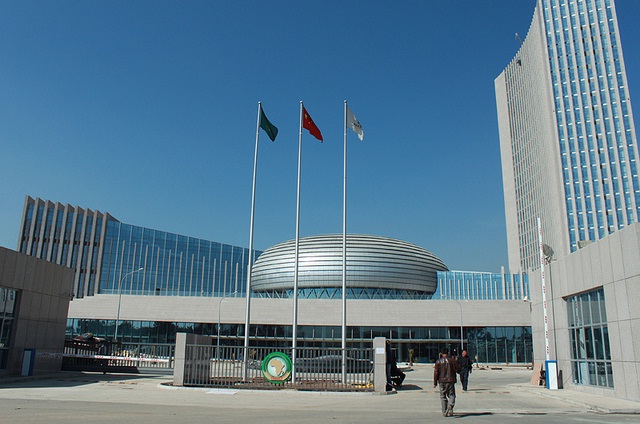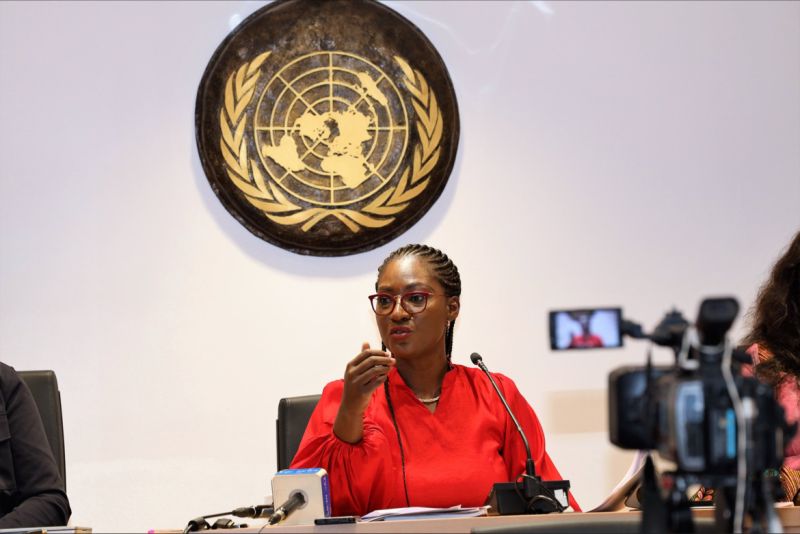Abbas Aisha was mending her herbal medicine kiosk around 6 pm in April 2014 when she heard the noise and heavy breaths of people scampering for safety from the bullets of the Boko Haram fighters in Gwoza, one of Borno’s populous towns.
One hour earlier, the terrorists — locally known as Mutani Dutse, meaning ‘people living on the mountain’ — had dislodged soldiers guarding the town, devoured their armoury, attacked fleeing residents and hoisted their flag in the town.
Aisha picked up a few of her belongings, together with her husband, tiptoed via the Mandara mountain down to Yola, the capital city of Adamawa state, where she would later work on farms as a labourer. The couple’s life trajectory took a downturn. They never had it easy after then.
Since they left Gwoza for Yola, Aisha said she and her husband barely had a two-square meal a day. The situation worsened when she conceived twins – Hassan and Hussein — in 2022. While she was pregnant, Aisha said she fed mostly on corn derivates like Tuwo, Miyan Kuka and Miyan Yakuwa. At times, she would feed on leaves or even cook without meat, fish or seasoning. Two months after she gave birth to the twins, Aisha said the kids would cry heavily, stool and cough uncontrollably for the better part of the night.
Advertisement
During TheCable’s visit to the Gwoza general hospital in May, Aisha’s four-month-old twins were pinned to the bed for treatment after being diagnosed with acute malnutrition.
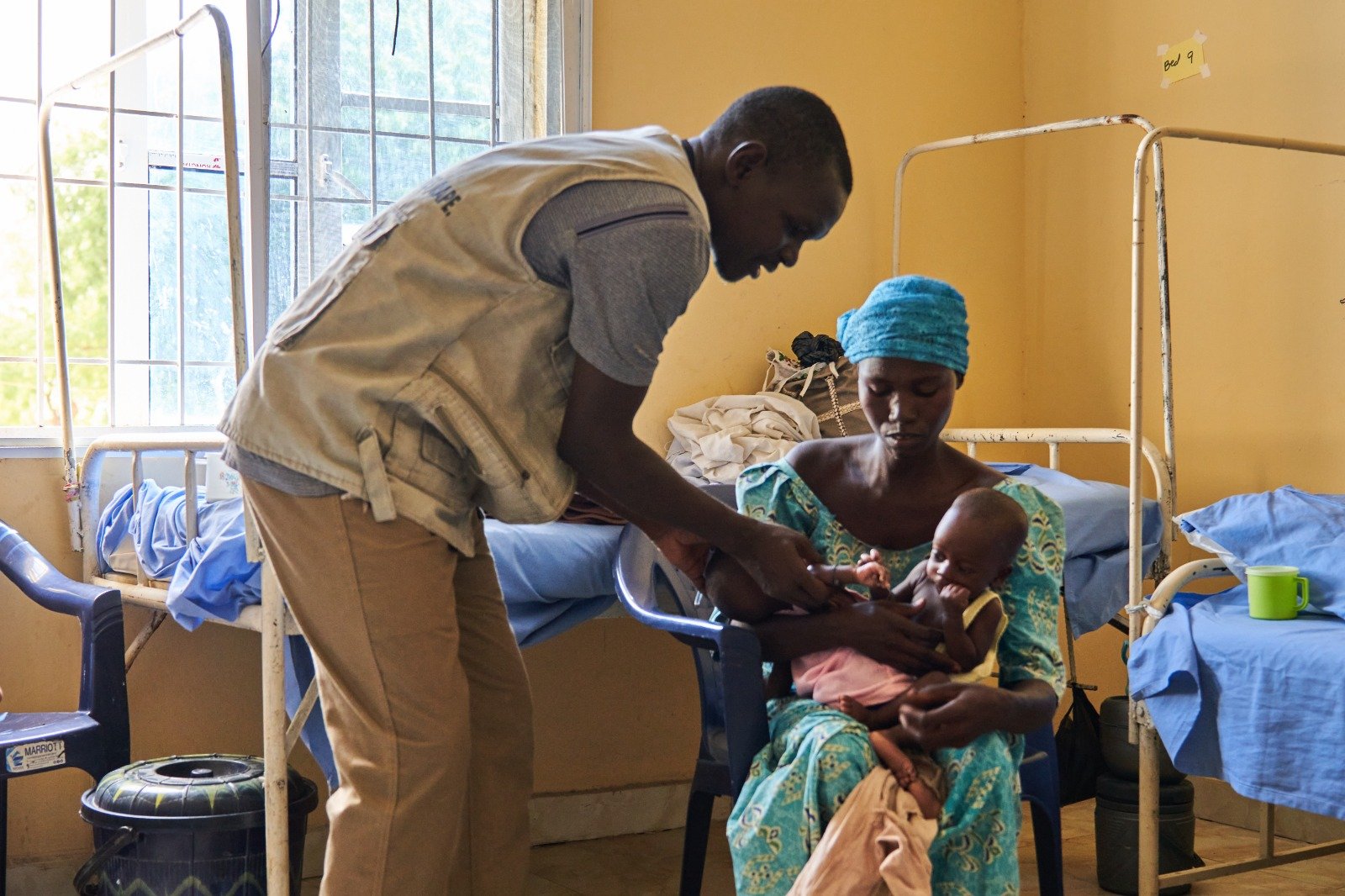
“Life was a bit better before Gwoza was captured by the Boko haram boys. I was a trader, I sold herbs and did petty trade. During the insurgency, we moved to Yola,” Aisha said.
“We hardly eat two square meals. Look at my twins; they are malnourished because there’s no water in the breast to feed them. Look at them now. The doctor said they are suffering from acute malnutrition.”
Advertisement
More than 35,000 people have been killed since 2009 when Boko Haram launched an insurgency in the north-east aimed at overthrowing Nigeria’s “secular government and establishing an Islamic state”.
Their tactics include killings, suicide bombings, abductions, torture, rape, forced marriages and the recruitment of child soldiers. They also launch attacks that are directed against government infrastructure, traditional and religious leaders and the civilian population.
Many villages and towns previously renowned for agriculture have been destroyed while a number of farmers have been killed thereby setting the north-eastern Nigeria on a course to food scarcity. The adverse effect is acute malnutrition, which is common among children in the region.
‘SEIZURES, EYES TWITCHING’ — MORE CHILDREN DIE OF MALNUTRITION IN BORNO
Advertisement
While this reporter was about winding down an interview with Aisha, an eight-month-old boy was rushed into the hospital at exactly 9:30 am. His eyes were twitching at intervals while he kept gnashing.
Profusely shedding tears, Muhammad Asia, the mother, untied the wrapper packing the sick child from her back. The boy, who was later identified as Ali, had lost so much weight judging from his mere physical appearance — thin legs and arms, big head and bloated belly with his mouth wide open.
After running a series of tests on him, Meshach Peter, the doctor overseeing the hospital, said Ali’s immune system was weak and pronounced him to be suffering from sepsis.
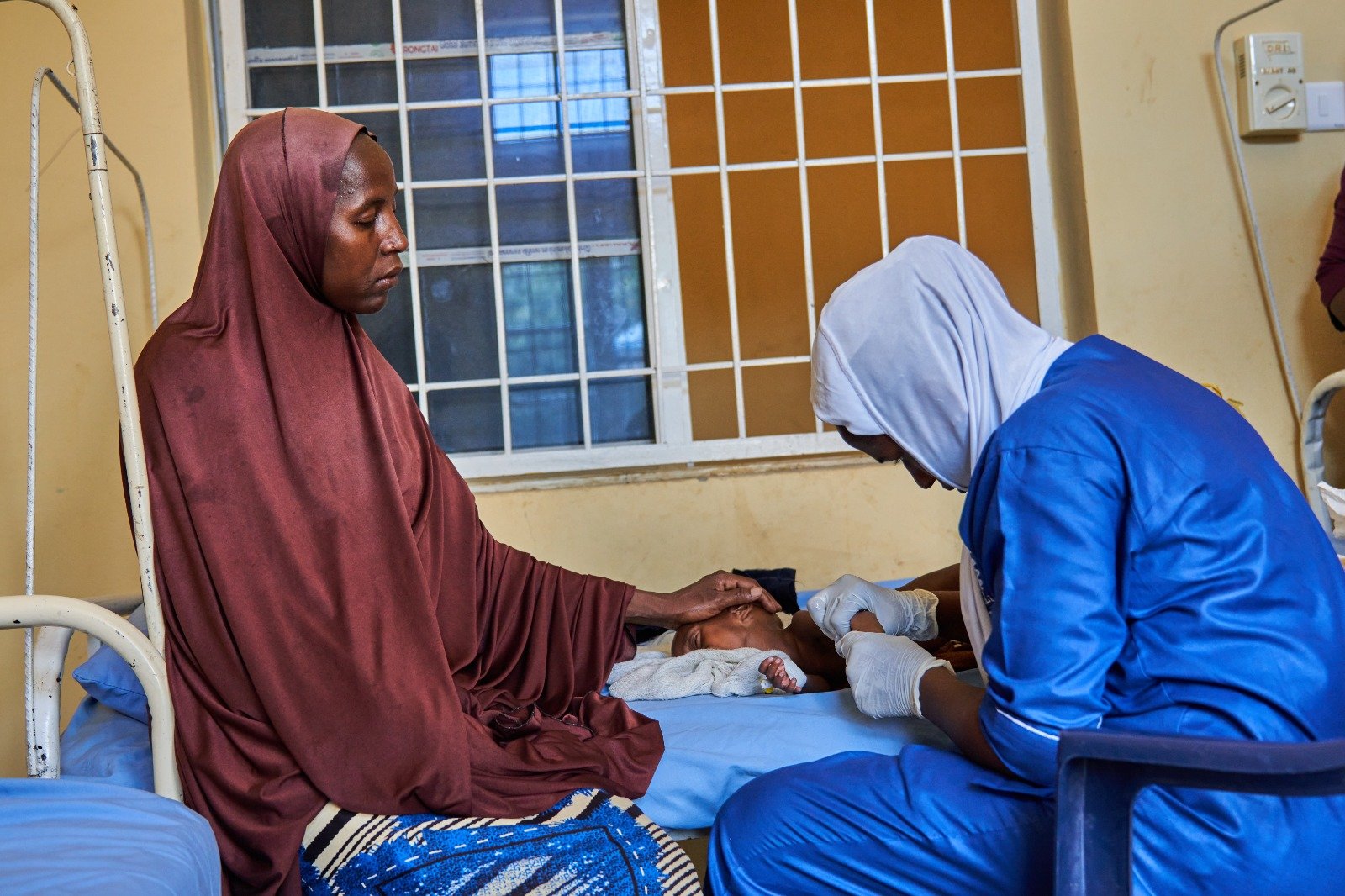
Sepsis is an overwhelming and life-threatening response to infection that causes organ failure. The spectrum of sepsis ranges from a microbial invasion of the bloodstream or intoxication with early signs of circulatory compromise — including tachycardia, tachypnea, peripheral vasodilation, and fever (or hypothermia) — to full-blown circulatory collapse with multiple organ dysfunction syndrome (MODS) and death.
Advertisement
The doctor said Ali’s case was not different from Aisha’s twins. They are all victims of acute malnutrition induced by insurgency.
Since Boko Haram captured Gobara — a settlement in the Sambisa forest area — Asia has been living in poverty together with her husband and children. Asia said the insurgents rule the community without any respite.
Advertisement
She also said prior to the invasion of Gobara, she and her husband were “well to do” with a large expanse of land and sacks of harvest yearly. But her situation is now pathetic because they were made to work on their farms as labourers to feed the insurgents.
While in Gobara, they fed on guinea corn and only ate rice whenever their farm masters were thrashing the spoilt ones.
Advertisement
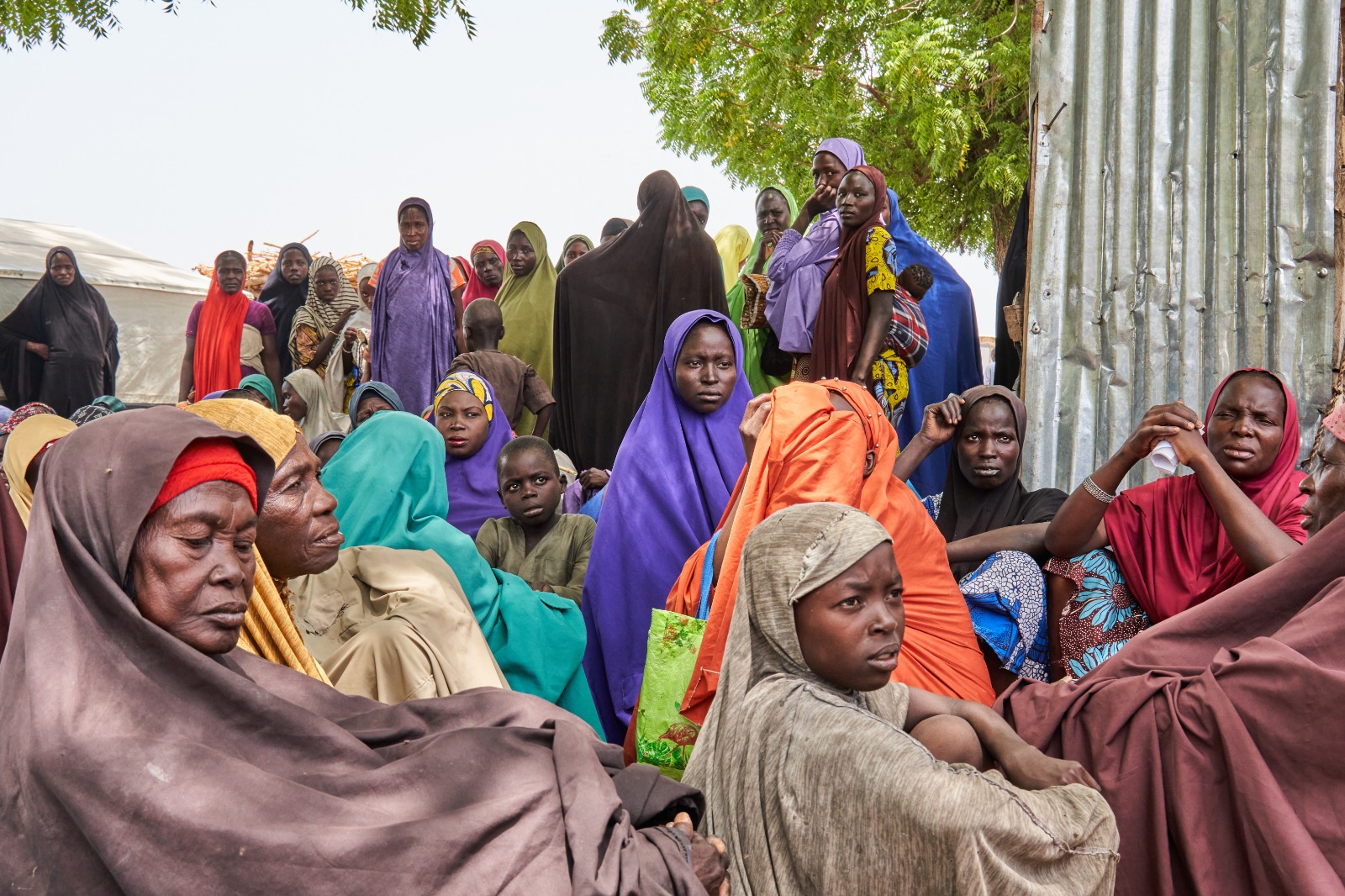
After eight years under the grip of the insurgents, Asia noticed Ali’s health condition was getting worse. She ran away from Gobara in early April to the outpatient refugee centre in Gwoza.
“We don’t eat rice. We don’t have access to adequate food. We work on our farms as their labourer. Life was bad and even now, nothing has changed. For the period we were captured, we mostly ate Guinea corn and other types of soups made with Zobo leaves. I just want my son better,” Asia said with tears flowing down her cheeks.
Advertisement
Malnutrition is not new in Borno where years of conflict and insecurity have caused a critical humanitarian situation. Many people have been displaced from their homes and now live in precarious conditions.
According to the United Nations Office for the Coordination of Humanitarian Affairs (OCHA), Aisha’s twins and Asia’s Ali may possibly be among the (approximately) two million children under five across Borno, Adamawa and Yobe states who are projected to be acutely malnourished in 2023.
‘ALARMING INCREASE IN SEVERE ACUTE MALNUTRITION RECORDED IN BORNO’
According to the recent nutrition surveillance data collected in March and April by the OCHA, five LGAs in Borno — Bama, Gwoza, Magumeri, Ngala, and Nganzai — are in a critical nutrition situation.
The report stated that a quarter of the children with the most immediate and life-threatening form of acute malnutrition live in extremely hard-to-reach locations due to conflict and/or physical impediments.
OCHA noted that the number of children with complicated acute malnutrition requiring inpatient care in Maiduguri, Borno state, increased by 48 per cent during the first quarter of 2023, compared to the same period in 2022.
The humanitarian arm of the UN said since late April, almost all stabilisation centres (SCs) in Maiduguri have been running at full capacity, leaving many children waiting in line for available bed spaces.
‘WE’RE HANDICAPPED’ — HEALTH WORKER RECOUNT BATTLE WITH MALNOURISHED PATIENTS
Peter, the doctor overseeing Gwoza general hospital, said inadequate supplies from humanitarian agencies and the government have sent many kids to an early grave.
Peter said the withdrawal of medical aids by Medecins Sans Fronteires (MSF) Swiss from Gwoza in August 2021 has left a huge vacuum that other aid providers in the country have not been able to fill to date.
The doctor said the International Rescue Committee (IRC) has been trying its best to keep the Gwoza general hospital running after building it.
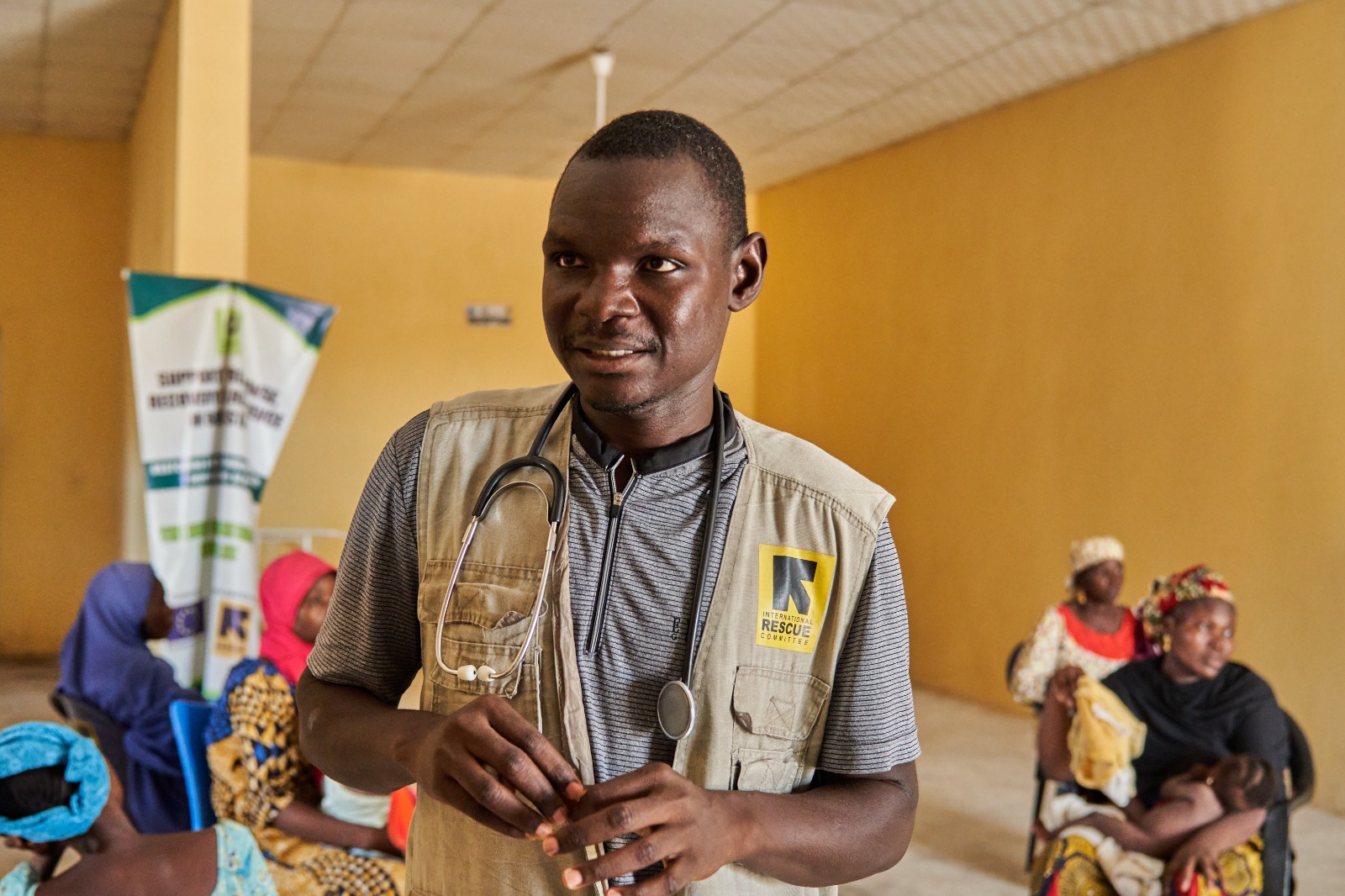
Peter added that despite IRC’s aid, many kids suffering from malnutrition have been “wasted” due to inadequate supplies.
Now, with 5-10 cases of acute malnutrition among young children, the doctor is scared of an increase in mortality rate as the country moves into the lean season. His fear is also exacerbated as the available hospital beds are filled to the brim.
“We have many cases of malnutrition in this environment. But on a daily basis, we have from 5-10 cases. It may be lower than that but depending on the season and also depending on the number of returnees from the insurgent areas,” Peter said as he shuffles between the hospital wards overwhelmed with cries of babies.
“Since MSF left, IRC has been trying to fill the vacuum here. It’s been overwhelming. We have lost many kids suffering from acute malnutrition just as we have been able to stabilise many too.
“There are feeding supplements (milk) that are given to patients with malnutrition. And these are the most important things that we need which IRC is supplying, and also medication. With that, we are able to stabilise most of the patients that come with malnutrition problems.”
‘1.9 MILLION PEOPLE PROJECTED TO BE STARVING DURING LEAN SEASON’
According to the March Cadre Harmonisé (CH) analysis of the Food Security Cluster (FSC), 1.5 million people will need food assistance between March and May this year in Borno. This number is projected to increase to 1.9 million at the peak of the lean season (June – September).
In response, the UN’s OCHA said it will need approximately $4 million in funding to increase bed capacity in stabilisation centres (by about 220 beds), support the operational costs of centres and implement a harmonised nutrition response across the state during the lean season.
OCHA said it will also need an additional $4 million to ensure a secure pipeline of lifesaving nutrition commodities.
The humanitarian organisation said delayed funding, as experienced in 2022, could have devastating consequences for many children.
“I have seen firsthand the anguish of mothers fighting for the lives of their malnourished infants in our partner-run stabilisation centres. This is a situation no one should have to face,” said Matthias Schmale, the humanitarian coordinator for Nigeria.
Schmale said he had seen first-hand accounts of how children are wildering in hunger.
“They are going for days without eating enough. Mothers said their children go to bed crying from hunger. Families struggling to feed their members as they have gone for months without receiving food assistance,” he said.
MSF: OUR HOSPITAL BEDS ARE FILLED… MORE CHILDREN MAY DIE OF MALNUTRITION
While at one of the therapeutic feeding centres run by the Médecins Sans Frontières/Doctors Without Borders (MSF) in Maiduguri, Gabriel Santr, the centre’s project coordinator, said the number of admissions (of children suffering from malnutrition) since the start of 2023 is the highest ever recorded by the team in Borno for months preceding the lean season.
Santr said the centre was filled to the brim and the team is looking at expanding its capacity so as to save more lives.
“The massive increase in malnourished children calls for malnutrition prevention and treatment activities to be scaled up immediately to avoid a catastrophic situation when the hunger gap arrives,” he said.
“It’s been a serious spike in admission rate. For the time being, we are able to cope with these figures. But we are expecting that the situation will get much worse because we know that there are a lot of people that have problems and that’s because they cannot get access to food. They are having problems because they don’t have access to trade and no money.”
Add a comment
